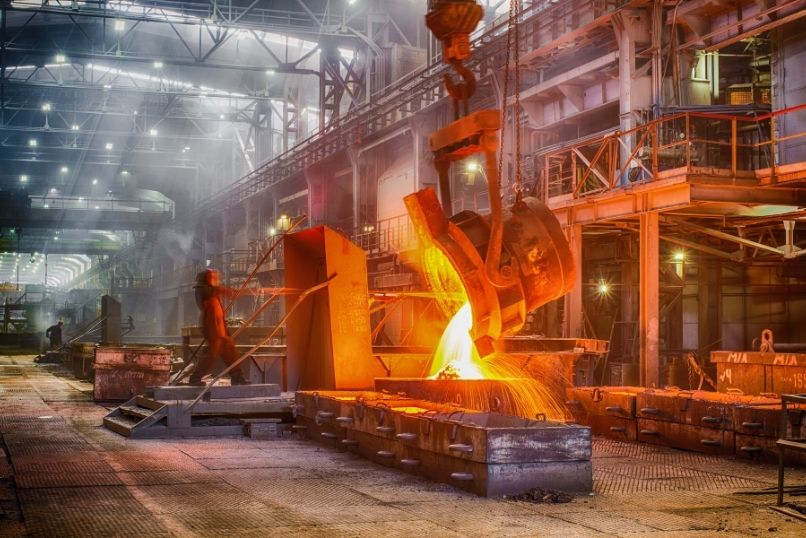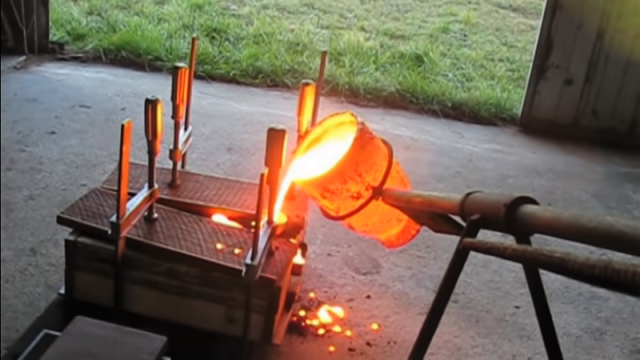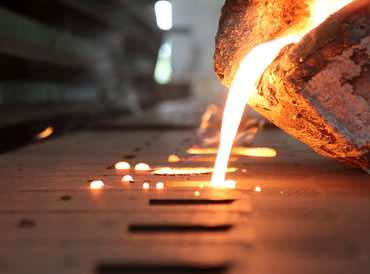Seven key advantages of choosing Aluminum Casting to achieve high performance
Discover the Diverse Solutions Offered by Steel Shops in Todays Sector
Metal foundries play a vital duty in contemporary manufacturing by offering a selection of solutions customized to meet commercial needs. They utilize strategies like sand spreading and precision machining to develop complicated elements. Customized alloy development better improves product efficiency. Nevertheless, quality control and sustainability are increasingly coming to be centerpieces in the industry. Comprehending these varied services discloses the considerable effect foundries have on production performance and environmental duty. What else may be affecting their development?
Steel Spreading Techniques: An Overview
Metal casting methods personify a blend of virtuosity and engineering, changing liquified metal into specific shapes and kinds. These methods have advanced over centuries, adapting to technological improvements and the diverse needs of different sectors. Among the most typical strategies are sand spreading, which utilizes sand mold and mildews; investment casting, understood for its intricate designs; and die spreading, which uses high pressure for fast manufacturing.
Each technique uses one-of-a-kind advantages, such as cost effectiveness, accuracy, and the capacity to work with different metal types. Sand casting is particularly preferred for its convenience and convenience of usage, whereas financial investment casting excels in creating detailed elements. Die casting, on the various other hand, is perfect for high-volume production, guaranteeing uniformity and fast turnaround. Collectively, these techniques play a vital duty in producing parts for auto, aerospace, and equipment fields, showcasing the detailed relationship in between design and performance in metalworking.

Precision Machining Provider
Accuracy machining solutions provide high accuracy and consistency in the manufacture of intricate parts throughout different markets - Metal Casting. These services are essential for generating parts that call for detailed styles and tight resistances, making sure that they satisfy stringent top quality requirements. Advanced machining methods, including CNC milling, transforming, and grinding, allow metal shops to produce elements with outstanding detail and finish
Utilizing cutting edge machinery, precision machining can take care of a large range of materials, consisting of plastics, metals, and compounds. This convenience enables industries such as aerospace, auto, and clinical to take advantage of tailored services that improve item performance and dependability.

Custom-made Alloy Growth
Customized alloy growth plays a vital duty in meeting the certain requirements of different commercial applications. Metal factories participate in creating tailored alloys that accommodate distinctive performance standards, such as toughness, deterioration resistance, and thermal conductivity. By making use of innovative metallurgical strategies and simulations, these foundries can formulate alloys that boost the total capability of items throughout varied fields, consisting of aerospace, vehicle, and electronic devices.
Partnership between foundries and clients is considerable in this process. Metallurgists and engineers collaborate to identify preferred properties, permitting exact modifications in composition and processing approaches. This bespoke technique not only optimizes product performance yet also adds to cost performance by lessening waste and maximizing source application.
In the competitive landscape of modern production, custom-made alloy advancement is a necessary solution that encourages services to introduce and preserve a competitive side while addressing details functional challenges effectively.
Quality Assurance and Testing Procedures
Ensuring the greatest standards of top quality control and screening treatments is important for steel factories to supply trustworthy products. These treatments generally include a variety of methods designed to examine the honesty and performance of steel spreadings. Foundries utilize numerous testing techniques, consisting of aesthetic evaluations, mechanical residential or commercial property examinations, and non-destructive screening methods such as radiographic and ultrasonic analyses.
Material structure is rigorously analyzed using spectrometric techniques to verify adherence to defined alloy criteria. Additionally, thermal analysis may be performed to monitor solidification patterns and anticipate mechanical properties.
Documentation of each testing phase is important, as it supplies traceability and assurance that the items fulfill industry policies and consumer assumptions. By executing stringent top quality control procedures, metal factories not just boost product dependability yet also foster count on with customers, maintaining an one-upmanship in the sector.
Sustainability Practices in Steel Foundries
As industries increasingly prioritize environmental duty, steel factories are embracing sustainability practices that lessen their eco-friendly footprint. Several shops are carrying out closed-loop systems to reuse materials, lowering waste and saving resources. This approach not just reduces the demand for resources yet additionally decreases energy consumption throughout manufacturing.
Additionally, some foundries are investing in energy-efficient modern technologies, such as electric heating systems and advanced cooling systems, which substantially lower greenhouse gas exhausts. The usage of environmentally friendly spreading materials and ingredients additionally enhances sustainability by decreasing unsafe environmental impacts.
Water preservation is one more important emphasis, with factories employing recirculation systems to restrict water use. On top of that, waste management strategies, including the recycling of sand and steel scrap, are ending up being basic method. By integrating these sustainability actions, steel foundries are positioning themselves as accountable players in the manufacturing sector, lining up with global initiatives to advertise a more lasting commercial landscape.
Regularly Asked Concerns
What Industries Frequently Use Metal Shop Services?
Various markets use steel factory services, including vehicle, power, construction, and aerospace industries. These industries depend on shops for tailored steel elements, casting remedies, and top notch materials vital for their production processes and product growth.
Exactly How Can I Select the Right Foundry for My Task?
To pick the right factory, one need to review elements such as field of expertise, reputation, innovation, top quality guarantee processes, delivery timelines, and client solution. Performing comprehensive research study and seeking suggestions can better guide the decision-making process.
What Is the Average Lead Time for Casting Orders?
The typical lead time for casting orders normally varies from 4 to twelve weeks. Variables influencing this timeline include order complexity, foundry capacity, and material availability, which can vary considerably among different factories.
Are Metal Factories Qualified of Producing Small Set Runs?

What Precaution Are Applied in Metal Shops?
Metal shops execute numerous security procedures, including individual safety tools, air flow systems, regular training, emergency feedback methods, and stringent adherence to safety regulations to decrease threats related to molten steel handling and work environment mishaps.
Steel factories play a crucial role in modern production by using a variety of solutions tailored to fulfill industrial demands. Metal shops engage in producing tailored alloys that provide to distinct efficiency criteria, such as stamina, rust resistance, and thermal conductivity. Ensuring the highest requirements of quality control and screening treatments is vital for steel foundries to deliver reputable items. As industries significantly prioritize environmental obligation, metal foundries are Aluminum Foundry embracing sustainability methods that decrease their ecological footprint. Various sectors make use of steel foundry services, consisting of automotive, energy, aerospace, and building industries.